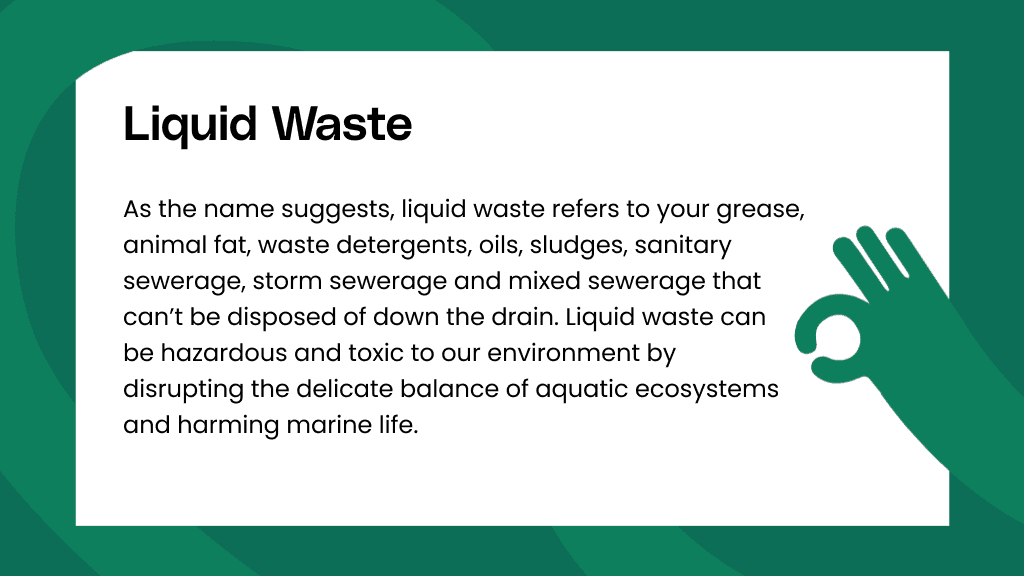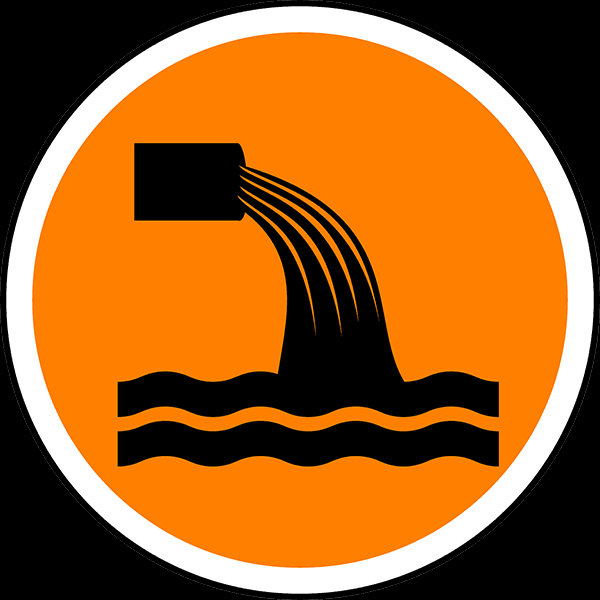7 Easy Facts About Reclaim Waste Explained
Table of ContentsReclaim Waste Things To Know Before You Get ThisAll about Reclaim Waste3 Easy Facts About Reclaim Waste ExplainedFascination About Reclaim WasteFascination About Reclaim Waste
Residential sewer waste refers to the waste and products from a household septic storage tank. The proper management and disposal of domestic sewage waste need fluid waste to be transferred to a sewer treatment plant where the appropriate techniques and devices are applied to cleanse and dispose of waste.
Business waste typically includes possible dangers, such as flammable products or a mix of liquid and solid waste items, and calls for an advanced and detailed disposal procedure. The disposal of industrial waste usually entails the filtration of waste before transportation to make sure risk-free and appropriate disposal. Industrial waste is produced from by-products and overflow of commercial procedures and production.
This kind of waste can not utilize the exact same sewer management transport or procedures as septic or business fluids. The hazardous waste monitoring procedure calls for the examination and testing of liquid waste prior to it undergoes the disposal process (liquid waste removal). Overflow waste is the fluid waste that originates from overflow and excess stormwater in very inhabited locations or cities
Runoff waste can cause contamination and flooding if not taken care of properly. Discover more concerning sewer cleaning and waste management. Making certain appropriate waste administration can avoid disasters and decrease environmental injury. Both people in residential settings and specialists in commercial or production industries can profit from understanding the processes and laws of fluid waste monitoring.
Reclaim Waste Fundamentals Explained
Contact PROS Solutions today to discover our waste monitoring and disposal services and the appropriate means to care for the fluid waste you generate.
Do you understand what happens to your water when you disengage, flush the commode or drain the cleaning device? No? Well, it's worth recognizing. This supposed 'wastewater' is not just an essential resource however, after therapy, will be launched to our land, waterways or the ocean. Made use of water from bathrooms, showers, bathrooms, kitchen sinks, washings and commercial processes is called wastewater.

water used to cool machinery or tidy plant and equipment). Stormwater, a type of wastewater, is runoff that streams from farming and metropolitan locations such as roofs, parks, gardens, roadways, courses and seamless gutters into stormwater drains, after rainfall. Stormwater moves without treatment straight to local creeks or rivers, ultimately getting to the sea.
Facts About Reclaim Waste Revealed
In Queensland, most wastewater is treated at sewage therapy plants. Wastewater is transferred from domestic or industrial sites through a system of sewage systems and pump terminals, recognized as sewage reticulation, to a sewer therapy plant. Neighborhood federal governments construct, maintain and run most sewer therapy plants. Operators are accredited under the Environmental Management Act 1994 to release treated wastewater at an acceptable environmental standard into waterways.
The Division of Natural Resources advises local governments about handling, operating and preserving sewerage systems and therapy plants. In unsewered areas, city governments may require owners to set up individual or house sewer treatment systems to deal with domestic wastewater from commodes, kitchen areas, restrooms and laundries. The Division of Natural Resources authorises the usage of home systems when they are proven to be reliable.
In some new neighborhoods, treatment of some stormwater to eliminate clutter, sand and gravel has started making use of gross pollutant catches. Wastewater therapy occurs in 4 phases: Removes solid issue.
Makes use of small living microorganisms knows as micro-organisms to break down and eliminate staying liquified wastes and great particles. Micro-organisms and wastes are integrated in the sludge.
Reclaim Waste Can Be Fun For Anyone
Nutrient elimination is not available at all sewage treatment plants because it needs pricey specialised equipment. Clear liquid effluent produced after therapy might still have disease-causing micro-organisms - liquid waste disposal melbourne.

This generally suggests wastewater has to be treated or impurities eliminated before it can be released to rivers. Many wastewater flows right into the sewerage system. Under the Act, regional governments carry out approvals view publisher site and permits for ecologically relevant activities (ERAs) including wastewater releases that may have a neighborhood effect. The division provides approvals and permits to Ages including wastewater releases that might have a local or statewide impact.
Not known Details About Reclaim Waste
Or else, examples are considered laboratory analysis. Often lots of examinations are required to develop the degrees of each of the various pollutants such as oils, heavy metals and pesticides in water. Tracking supplies valid info concerning water top quality and can validate that permit problems are being fulfilled. The details gotten with surveillance gives the basis for making water top quality decisions.
Comments on “Reclaim Waste for Beginners”